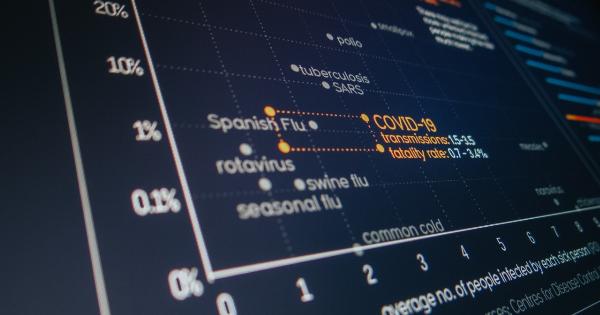Alcoholism, also known as alcohol use disorder (AUD), is a chronic disease characterized by the inability to control or stop drinking despite negative consequences on physical and mental health, relationships, and responsibilities.
It affects millions of people worldwide and can lead to severe health problems and even death if left untreated. Fortunately, there are effective medicines available that can aid in the treatment of alcoholism by reducing cravings, managing withdrawal symptoms, and promoting abstinence.
1. Disulfiram (Antabuse)
Disulfiram is one of the oldest medications used to treat alcoholism. It works by causing unpleasant effects such as nausea, vomiting, and flushing when alcohol is consumed.
This aversion therapy helps people develop a strong aversion to alcohol, discouraging them from drinking. However, it is important to note that individuals must be motivated to abstain from alcohol completely, as consuming alcohol while on disulfiram can be dangerous.
2. Naltrexone (Vivitrol, Revia)
Naltrexone is another medication commonly used to treat alcoholism. It works by blocking the effects of endorphins, the brain’s natural “feel-good” chemicals that are released when drinking alcohol.
By reducing the pleasurable effects of alcohol, naltrexone helps reduce cravings and the likelihood of relapse. It can be administered as a daily pill (Revia) or a monthly injection (Vivitrol), providing flexibility and convenience for individuals in recovery.
3. Acamprosate (Campral)
Acamprosate is a medication that helps individuals maintain abstinence from alcohol by reducing withdrawal symptoms and the desire to drink.
It works by restoring the brain’s chemical balance, which is often disrupted by chronic alcohol consumption. Acamprosate is typically used in combination with counseling or behavioral therapies to improve treatment outcomes and support long-term recovery.
4. Baclofen (Lioresal)
Baclofen, originally developed as a muscle relaxant, has shown promise in treating alcoholism. It works by reducing cravings and the desire to drink.
Baclofen targets the brain’s GABA receptors, which are involved in regulating anxiety and the rewarding effects of alcohol. Studies have shown that it can significantly decrease alcohol consumption and improve abstinence rates, particularly in individuals with severe alcohol dependence.
5. Topiramate (Topamax)
Topiramate, primarily used as an antiepileptic medication, has also been found to be effective in treating alcoholism. It acts on various neurotransmitters in the brain to reduce cravings and normalize brain activity disrupted by alcohol.
Topiramate has shown promising results in reducing heavy drinking, improving abstinence rates, and addressing co-occurring psychiatric conditions commonly associated with alcoholism, such as anxiety and depression.
6. Ondansetron (Zofran)
Ondansetron is a medication primarily used to treat nausea and vomiting caused by chemotherapy or surgery. However, recent research indicates that it may also be useful in reducing alcohol consumption.
Ondansetron targets the serotonin system in the brain, which plays a role in alcohol cravings and reward. While more research is needed to establish its efficacy as a standalone treatment for alcoholism, it shows promise as an adjunct to other medications and therapies.
7. Gabapentin (Neurontin)
Gabapentin, primarily used for treating seizures and neuropathic pain, has also been investigated for its potential in treating alcoholism.
It helps reduce alcohol cravings and withdrawal symptoms by affecting GABA receptors in the brain, similar to other medications like baclofen. Although more research is needed to determine its efficacy, some studies have shown positive outcomes in reducing alcohol consumption and promoting abstinence.
8. Opioid Antagonists
Opioid antagonists such as nalmefene and naloxone hold promise for the treatment of alcoholism. These medications work by blocking opioid receptors in the brain, reducing the rewarding effects of alcohol.
By diminishing the pleasurable sensations associated with drinking, these medications help reduce alcohol cravings and promote abstinence. However, further research is needed to establish their effectiveness and appropriate dosing regimens in the treatment of alcoholism.
9. Serotonin Reuptake Inhibitors (SRIs)
While selective serotonin reuptake inhibitors (SSRIs) and other serotonin reuptake inhibitors (SRIs) are primarily used to treat conditions such as depression and anxiety, they may also have a role in treating alcoholism.
These medications help regulate serotonin levels in the brain, which can be imbalanced in individuals with alcohol use disorder. By addressing underlying mental health concerns, SRIs can support the recovery process and reduce the risk of relapse.
10. Combination Therapies
Combination therapies, which involve the use of two or more medications, have also shown promise in treating alcoholism.
For example, the combination of naltrexone and acamprosate has been found to improve treatment outcomes and increase abstinence rates. By targeting different aspects of alcohol addiction, combination therapies can provide a more comprehensive and effective approach to treatment.
Conclusion
Effective medicines for treating alcoholism play a crucial role in helping individuals overcome their addiction and achieve long-term recovery.
Disulfiram, naltrexone, acamprosate, baclofen, topiramate, ondansetron, gabapentin, opioid antagonists, and SRIs are among the medications that have shown promise in reducing alcohol cravings, managing withdrawal symptoms, and promoting abstinence. Moreover, combination therapies can enhance treatment outcomes by targeting multiple aspects of alcohol addiction.
It is essential to consult with healthcare professionals and receive comprehensive care tailored to individual needs to maximize the benefits of medication-assisted treatment for alcoholism.


























